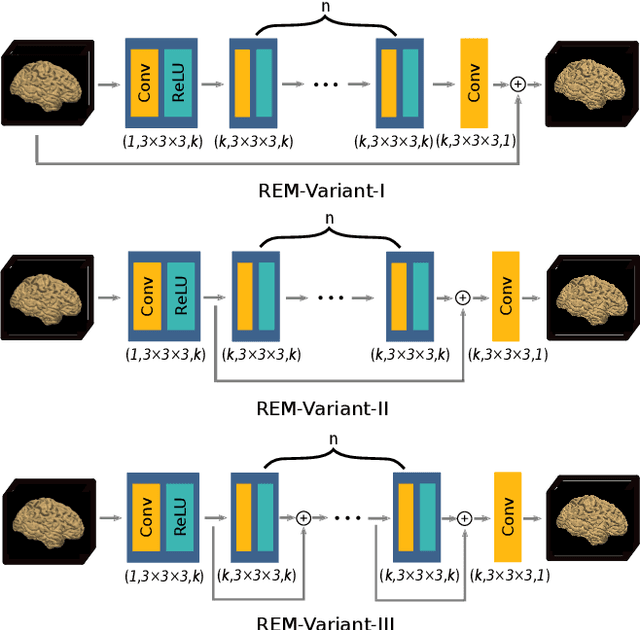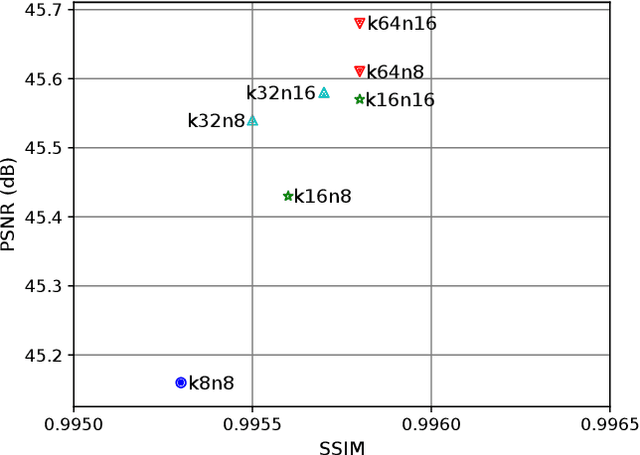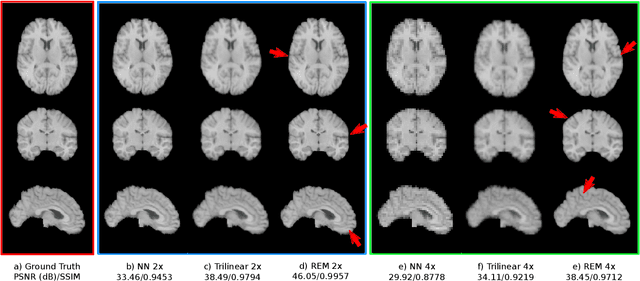A Resolution Enhancement Plug-in for Deformable Registration of Medical Images
Paper and Code
Dec 30, 2021



Image registration is a fundamental task for medical imaging. Resampling of the intensity values is required during registration and better spatial resolution with finer and sharper structures can improve the resampling performance and hence the registration accuracy. Super-resolution (SR) is an algorithmic technique targeting at spatial resolution enhancement which can achieve an image resolution beyond the hardware limitation. In this work, we consider SR as a preprocessing technique and present a CNN-based resolution enhancement module (REM) which can be easily plugged into the registration network in a cascaded manner. Different residual schemes and network configurations of REM are investigated to obtain an effective architecture design of REM. In fact, REM is not confined to image registration, it can also be straightforwardly integrated into other vision tasks for enhanced resolution. The proposed REM is thoroughly evaluated for deformable registration on medical images quantitatively and qualitatively at different upscaling factors. Experiments on LPBA40 brain MRI dataset demonstrate that REM not only improves the registration accuracy, especially when the input images suffer from degraded spatial resolution, but also generates resolution enhanced images which can be exploited for successive diagnosis.
 Add to Chrome
Add to Chrome Add to Firefox
Add to Firefox Add to Edge
Add to Edge